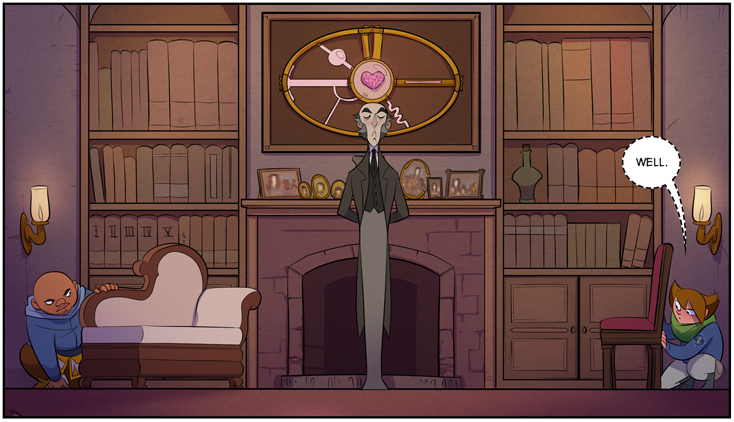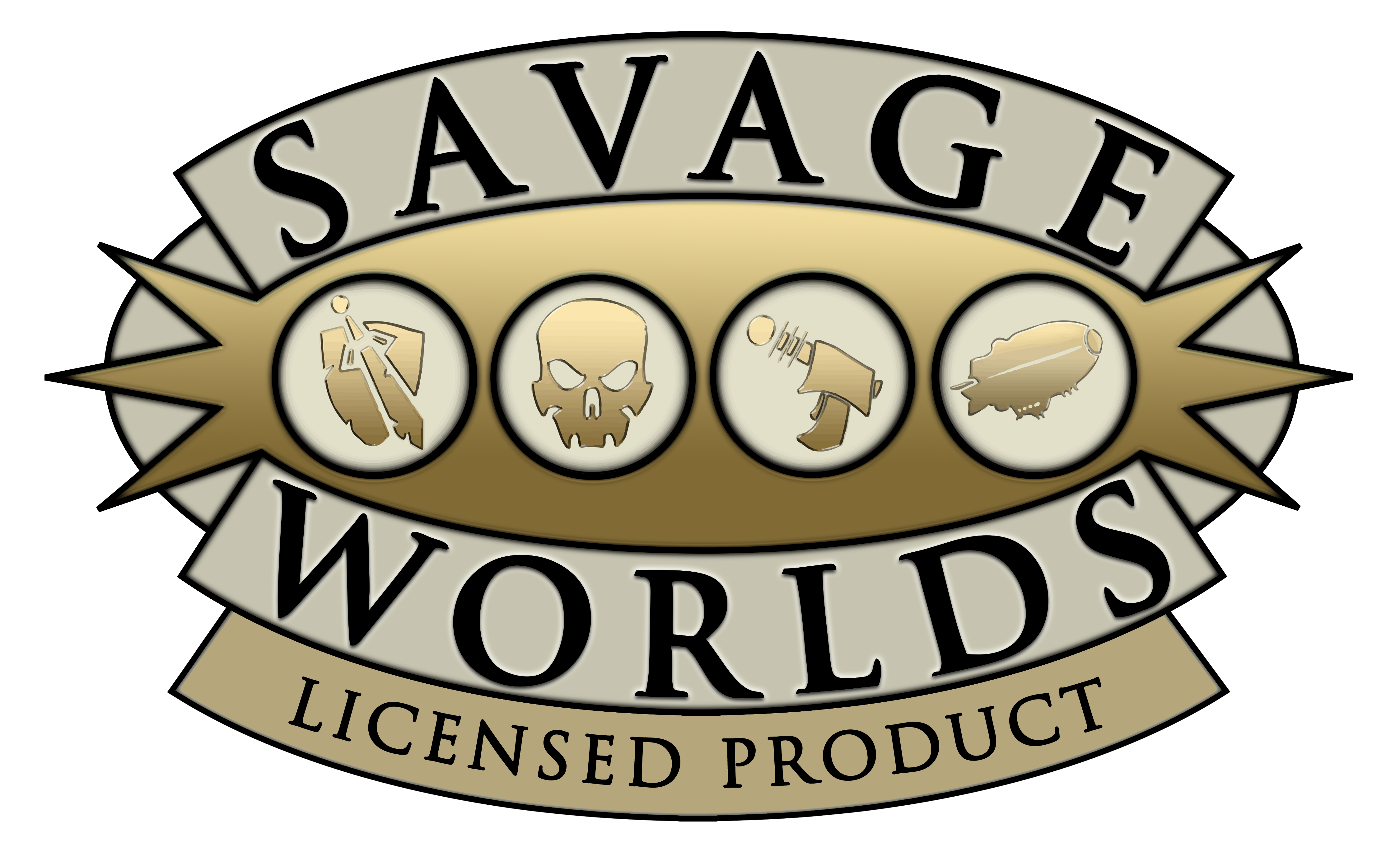In these two pages we focus on Raffaela, as she separates herself from the rest of the party and acts alone. Let me tell you a little spoiler secret – that’s not the last time a PC will act alone, in this adventure. (That’s actually the whole point of the adventure.)
There’s an old RPG saying, “never split the party”; the common interpretation is “splitting up reduces our chances of survival”, but a much more common occurrence is “splitting makes it hard to tell a story that engages everyone”. When the heroes aren’t acting together, in the same scene, it means that at least one player is sitting to the side, not being a part of the story. This isn’t necessarily a no-no (some players enjoy taking a step back and act as an audience for a few minutes), but it is a potential problem, one that deserves attention.
There are various things to say about this phenomena (we did a whole episode about it in the original On the Shoulders of Dwarves), so today let’s focus on what’s going on in the comics: sending a single character away from the party.
Some Guidelines
As the GM, here are your main considerations when running an “alone scene”. They all revolve around one powerful fact: The other players are willing to be an audience, but only for a limited time. Various players have different limits to their willingness, but none of them came here to be an audience full-time.
Keep it short. Always keep in mind that this scene should end, soon. If you’re introducing a new complication (let’s say you’re playing a Powered by the Apocalypse game), make it one that shouldn’t be resolved here and now. Keep things rolling, both in-play and off-play; this isn’t the time to check for obscure rules. Every moment spent in the real world in which the other players aren’t involved, is stretching their patience. Most importantly, encourage the player to propel forward.
Focus on this character’s abilities or stories, and let her shine. Having some alone time doesn’t happen often, which is why you should use this opportunity to let the PC show what she’s got. Solving problems with Sneaking, Throwing, and most importantly, chutzpah, is what Raffaela’s all about, so Nadav made sure that Trombone is behaving in a way that leaves room for such solutions (he didn’t, for example, went up to talk to the Valet). It’s okay to stretch the willing suspension of disbelief a little, and maybe skip a rule or two, if it keeps things entertaining: first, because an entertained audience is one that’s much more willing to be an audience, and second, it’ll help keep the scene short; success, generally speaking, advances the action quicker than failure does.
Don’t bring a full resolution. These sort of “alone scenes” really shouldn’t be used to advance the story in a big way, and definitely not act as a peak in the tension or drama. Instead, as said earlier, focus on this one character, what she can do, how she does it, and why she’s doing it. There’s an old writers’ saying, that every scene should either advance the plot, or a character. This is definitely a character-advancing scene.
Keep things rolling in the other scene. Here and there, when there’s a gap in the action, turn to the other players and say something simple, along the lines of “Contessa snorts at your comment. What did you say?” or, “They started serving soup, it’s surprisingly bland.”, and let them respond with a few words. This, again, helps in stretching the other players’ patience, but it also serves two other important roles: First, it makes sure that time is moving forward to everyone, so that the lone character isn’t acting in a bubble of space-time. She really should start moving forward (and thus, keep the scene short). Second, it reassures the other players that you haven’t forgotten that they’re important as well. Since the GM is the one pointing the spotlight, she’s basically the one person around the table that gets to say “This/you is important”. We all came here to play, help us feel important to the game, so point at us occasionally.
Don’t shush the other players. This is more of a sub-clause of the previous point, but it deserves special attention. Note how in both pages we show the other players, despite not showing their characters. They aren’t saying a lot, but they’re still there, and they’re going to comment on what’s happening, because even though the adventure is currently revolving around a single character, it’s still a part of the social experience we’re all having right now (and some players love to talk things out). I’ve seen GM’s disencouraging other players from participating in the conversation, probably in an effort to make the lone character’s isolation “more real”, and while back-seat driving is really inappropriate (“You should really do this!!”), banning all other players from talking is taking it too far to the other extreme; there’s a lot of room in the middle.
Even if the scene you’re having is all about scary, tense, sneaky stuff, it’s much better to speak in a low voice, have long pauses, and otherwise behave in a way that encourages silence, than to ask the other players to stop talking. If a player is allowing themselves too much freedom, everyone (not just the GM) should remind them that during this scene, they should be more of an audience. The spotlight is on another player, let them shine. If this keeps happening, it might be that the talkative player isn’t feeling secure, worried they won’t be given the spotlight, maybe because they don’t get enough alone scenes of their own, or maybe because their expectations aren’t met.
Remember the most important guideline in any RPG session: managing expectations. The other players are probably expecting the following: that the scene will end soon (so that they’ll be able to act again) and that nothing too important happens (so that they’ll have a saying on where the story goes). If any of these expectations isn’t going to be met, try to be aware of it ahead of time, and prepare. Which is what Nadav is going to do, in a scene yet to come.
If you enjoy these weekly articles, know this: Starting next week, we’ll be giving our patrons a new RPG article every month, focusing on new aspects, concepts and stuff from the Crystal Heart universe, with most content being usable in any setting that uses the same general genre (high adventure, colourful superpowers, maybe some obscure technology). See the full details here!
And this Saturday, come and meet us at our exhibitor stand in Dragonmeet! We’d love to discuss and/or wave at each other. (Check our article in the programme, if you haven’t already)




